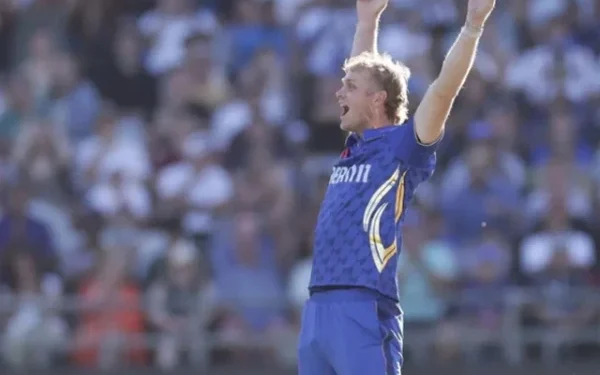Introduction
The Pakistan Super League (PSL) has been a vital platform for cricketers worldwide, offering exposure, competitive gameplay, and financial benefits. However, controversy has erupted as South African all-rounder Corbin Bosch withdrew from PSL 10, opting instead to join the Indian Premier League (IPL). His decision has sparked discussions regarding player commitments, league contracts, and the implications for PSL’s credibility.
Corbin Bosch’s Contract with Peshawar Zalmi
Bosch had signed a contract with Peshawar Zalmi for the upcoming PSL 10 season, set to take place from April 11 to May 18, 2025. His inclusion was seen as a significant boost to the team, given his all-round capabilities and prior performances in franchise cricket. However, just weeks before the tournament, Bosch opted out, citing career growth and long-term prospects as his primary reasons.
Shift to IPL and Its Impact
Bosch has now joined the Mumbai Indians franchise in the IPL, which runs from March 22 to May 25. His sudden withdrawal from PSL 10 in favor of IPL has raised concerns within the Pakistan Cricket Board (PCB) and among PSL stakeholders. Mumbai Indians, a team with franchises in various global leagues, provides Bosch with a lucrative and extensive playing opportunity beyond just the IPL, making the decision tempting for the young cricketer.
PCB’s Response and Legal Action
The PCB took swift notice of Bosch’s contract violation and had initially announced plans to send a legal notice to him through his agent. The board is now carefully reviewing Bosch’s explanation before deciding on the course of action. According to sources, the PCB aims to assess the extent to which the contract has been breached and whether punitive action is warranted.
Corbin Bosch’s Explanation
On Monday, Bosch provided an official explanation to Pakistani authorities regarding his withdrawal. He clarified that his decision was not meant to disrespect the PSL but was made in light of his future career prospects.
He reportedly stated, “My intention was never to undermine PSL’s significance. However, given the long-term opportunities that Mumbai Indians provide across multiple leagues worldwide, I had to make a tough choice.”
Bosch’s explanation acknowledges PSL’s value but emphasizes the benefits of aligning with a globally connected franchise, such as Mumbai Indians, which owns teams in leagues like SA20 (South Africa), ILT20 (UAE), and Major League Cricket (USA).
PCB’s Dilemma: Punishment or Leniency?
PCB officials now face a crucial decision regarding Bosch’s breach of contract. There are two main schools of thought within the board:
- Strict Disciplinary Action – Some officials argue that Bosch should face strict consequences, such as a ban from future PSL seasons. They believe this would set a precedent for players considering similar contract violations and protect the league’s reputation.
- Symbolic Punishment or Leniency – Others suggest that imposing a severe penalty could discourage foreign players from signing with PSL in the future. They argue that a minor symbolic fine or warning might be a more strategic response, preserving PSL’s appeal to international cricketers.
Broader Implications for PSL
Bosch’s withdrawal has reignited discussions about the competition between PSL and IPL. The IPL’s financial power and global reach make it the top choice for many cricketers, and PCB must now explore ways to enhance PSL’s competitiveness.
One way to counter such challenges is by ensuring more lucrative contracts, stable scheduling, and enforcing stricter contractual obligations. PSL management might also look into offering long-term incentives for players to maintain loyalty to the league.
Conclusion
The PCB’s decision on Bosch’s withdrawal will be closely watched, as it will set a precedent for handling similar cases in the future. Whether they choose to impose a strict penalty or opt for a more forgiving approach, the key concern remains PSL’s credibility and its standing among international cricket leagues. The coming days will determine how PCB navigates this situation while maintaining a balance between enforcing contracts and sustaining PSL’s appeal for foreign players.

























